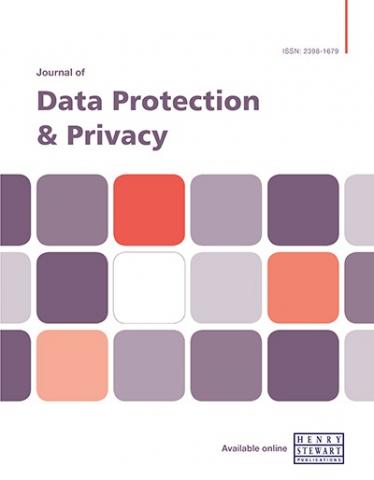"JDPP is a leading peer-reviewed journal that addresses the global concerns of data protection and privacy with cutting edge insights from the thought leaders in judiciary, industry and academia."
Recognising generative and autonomous AI as a ‘juridical person’
Click the button below to download the full text of the article.
Abstract: In the current era, there is a significant global effort to establish legal and regulatory frameworks for the responsible use of artificial intelligence (AI). The discussions surrounding autonomous AI highlight challenges related to its technological transparency and, often, opacity. Despite the widespread application of AI in various fields, debates persist on decision-making processes, the necessity for safe and fair outcomes and the need for regulatory platforms ensuring compliance and governance in AI implementation. Issues such as the ‘authorship’ and ‘inventorship’ of autonomously generated creations, particularly in cases like the ‘device for autonomous bootstrapping of unified sentience’, have sparked intense debates and legal proceedings in multiple locations, including the UK, USA, Australia, Germany, New Zealand, Taiwan and the EU. The Supreme Court of India judgment in 2019 presents a detailed analysis for the recognition of idols as juristic personality. The judgment provides sufficient basis for the creative recognition of ‘generative and autonomous AI’ as a ‘juridical person’. Such a recognition would entitle the AI system to a patent both as an inventor and an applicant satisfying all the essential requirements of the Indian Patents Act. Alternatively, an appropriate sui generis system will have to be developed in various jurisdictions based on some commonly accepted principles.
Keywords: Artificial intelligence (AI), legal aspects, regulatory guidelines, autonomous, inventions, patent, copyright, IP ownership



